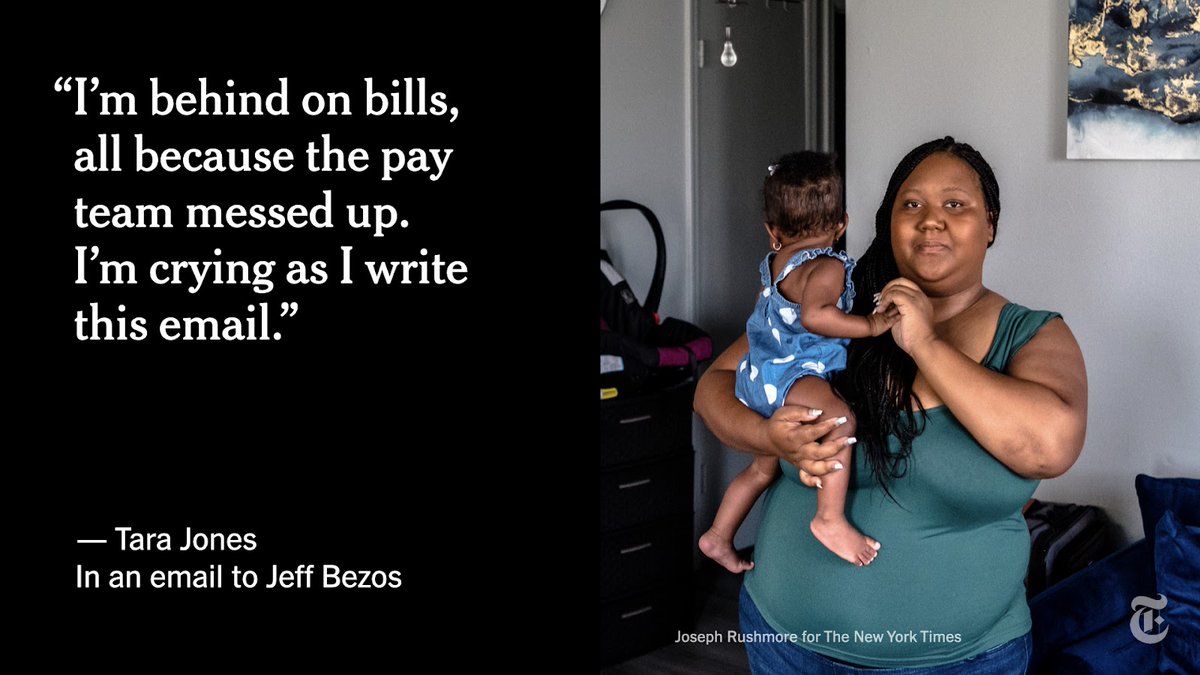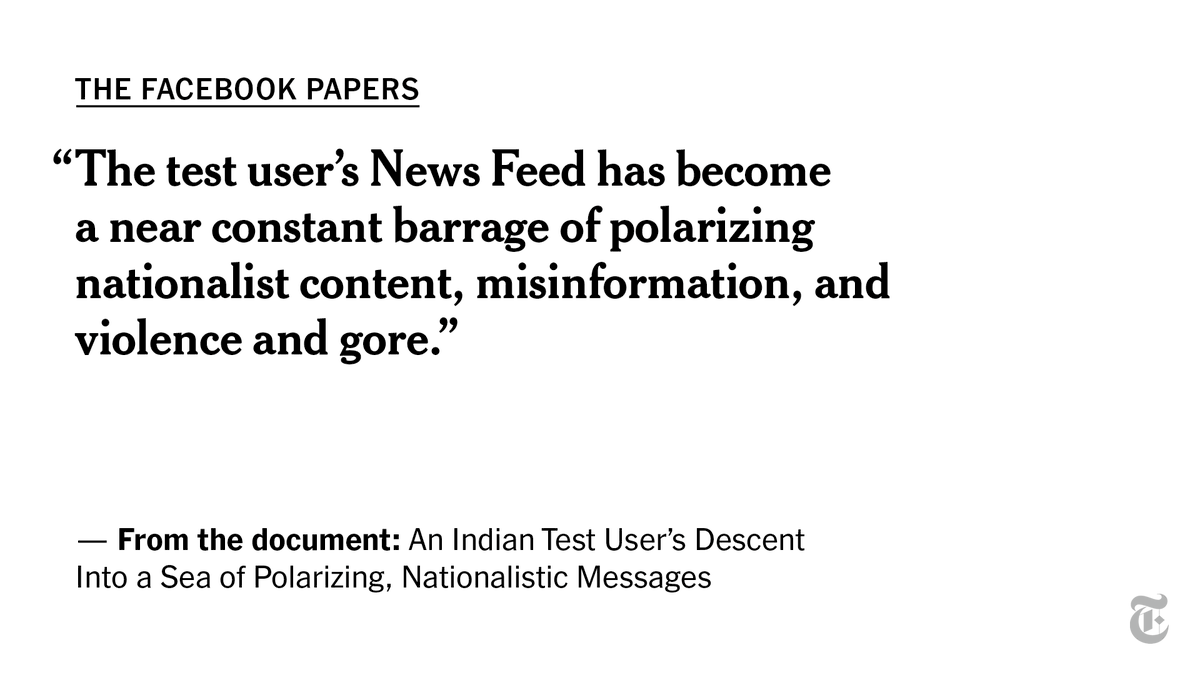
Exclusive: The gravest problem with the way Amazon treats employees may be one you’ve never heard of. As the company hit record profits, it fired and underpaid employees who sought leaves for medical issues, new parenthood and life crises.
nyti.ms/3B9L5c5
nyti.ms/3B9L5c5
A year ago, Tara Jones, an Amazon warehouse worker, looked at her paycheck and noticed she was underpaid by a significant chunk: $90 out of $540.
The mistake kept repeating after she reported it. She grew so exasperated she wrote an email to Jeff Bezos.
nyti.ms/3jAblX3
The mistake kept repeating after she reported it. She grew so exasperated she wrote an email to Jeff Bezos.
nyti.ms/3jAblX3

Her message triggered an internal investigation and a discovery: Jones was far from alone. Amazon had been short-changing new parents, patients dealing with medical crises and other vulnerable workers on leave, according to a confidential report. nyti.ms/3jAblX3
That error is only one of many problems we unearthed with Amazon's system for handling leaves. The issues are more widespread and harmful than previously known, records and interviews reveal, amounting to one of its most serious HR problems. nyti.ms/3jAblX3
Workers with medical problems and other crises were fired when software mistakenly marked them as no-shows. Doctor's notes vanished in Amazon's databases.
Those ready to return to work sometimes lost income, waiting weeks or months because of the backlog.
nyti.ms/3jAblX3
Those ready to return to work sometimes lost income, waiting weeks or months because of the backlog.
nyti.ms/3jAblX3
In response to our findings, Amazon stressed its commitment to fix the leave system's problems by hiring hundreds of new employees, streamlining systems and processes, and improving training. nyti.ms/3jAblX3
Earlier this year, James Watts stopped receiving disability payments abruptly. Because he had no pay for two weeks, his car was repossessed. To afford food and doctors' bills, he and his wife sold their wedding rings. nyti.ms/3jAblX3 

Back in June, we documented how badly the leave process jammed during the pandemic, finding that it was one of many employment lapses during the company's greatest moment of financial success.
nytimes.com/interactive/20…
nytimes.com/interactive/20…
We’d like to deepen our knowledge of the employment model and practices at Amazon, as well as at other powerful companies. If you have knowledge to share, we would like to hear from you.
nytimes.com/2021/10/21/bus…
nytimes.com/2021/10/21/bus…
• • •
Missing some Tweet in this thread? You can try to
force a refresh









